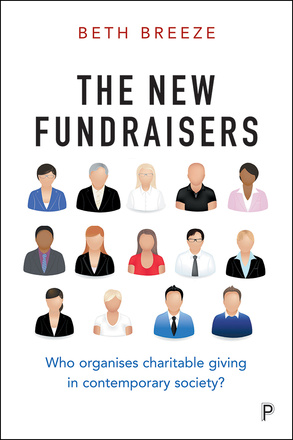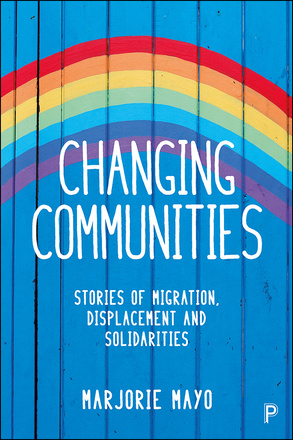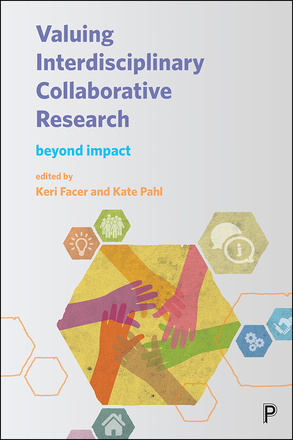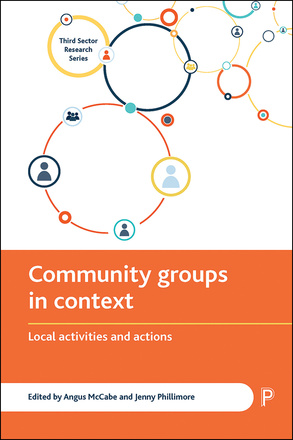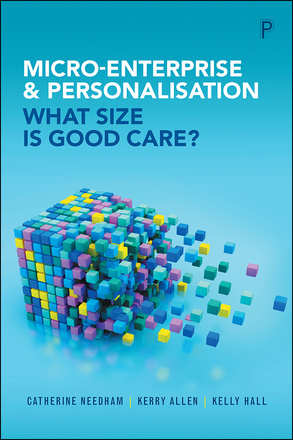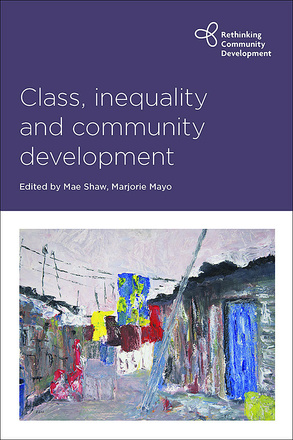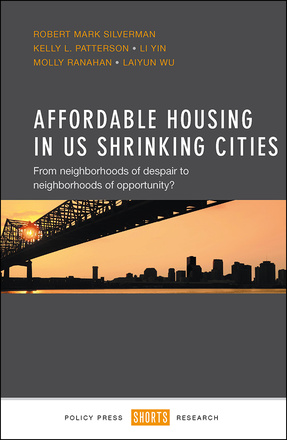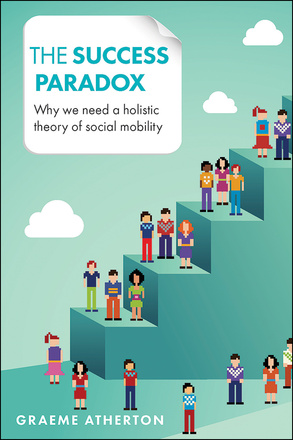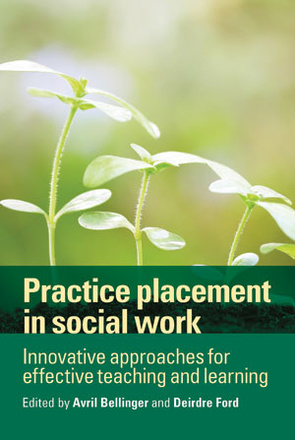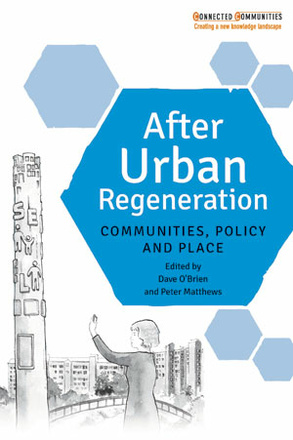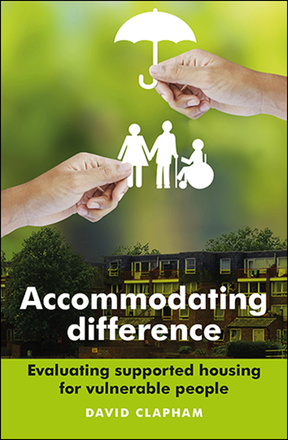Community Development - Research
The New Fundraisers
Who Organises Charitable Giving in Contemporary Society?
This is the first empirically-grounded and theorised account of the identity, characteristics and motivation of fundraisers in the UK. Based on original data collected during a 3-year study of over 1,200 fundraisers, the book argues that it is not possible to understand charitable giving without accounting for the role of fundraising.
- AvailablePaperbackGBP 27.99 Add to basket
- AvailableHardbackGBP 85.99 Add to basket
- AvailableEPUBGBP 27.99 Add to basket
- AvailableKindleGBP 27.99
Changing Communities
Stories of Migration, Displacement and Solidarities
- AvailablePaperbackGBP 27.99 Add to basket
- AvailableHardbackGBP 85.99 Add to basket
- AvailableEPUBGBP 27.99 Add to basket
- AvailableKindleGBP 27.99
Valuing Interdisciplinary Collaborative Research
Beyond Impact
Universities are increasingly taking an active role as research collaborators with citizens, public bodies, and community organisations but they, their funders and institutions struggle to articulate the value of this work. This book addresses the key challenges in collaborative research in the arts, humanities and social sciences.
- AvailablePaperbackGBP 27.99 Add to basket
- AvailableHardbackGBP 85.99 Add to basket
- AvailableEPUBGBP 27.99 Add to basket
- AvailableKindleGBP 27.99
Community Groups in Context
Local Activities and Actions
Collates knowledge and examines the role and nature of community groups and activities operating outside of the formal voluntary sector in the UK to develop a coherent understanding about these so-called “below the radar” organisations.
- AvailablePaperbackGBP 26.99 Add to basket
- AvailableHardbackGBP 85.99 Add to basket
- AvailableEPUBGBP 26.99 Add to basket
- AvailableKindleGBP 26.99
Micro-Enterprise and Personalisation
What Size Is Good Care?
What size is 'just right' for a care provider? This book explores size as an independent variable in care services, comparing outcomes and value for money across micro, small, medium and large organisations.
- AvailablePaperbackGBP 27.99 Add to basket
- AvailableHardbackGBP 79.99 Add to basket
- AvailableEPUBGBP 27.99 Add to basket
- AvailableKindleGBP 27.99
Class, Inequality and Community Development
This book, the second title in the Rethinking Community Development series, argues for the centrality of class analysis and its associated divisions of power to any discussion of the potential benefits of community development.
- AvailablePaperbackGBP 27.99 Add to basket
- AvailableHardbackGBP 79.99 Add to basket
- AvailableEPUBGBP 27.99 Add to basket
- AvailableKindleGBP 27.99
Affordable Housing in US Shrinking Cities
From Neighborhoods of Despair to Neighborhoods of Opportunity?
With almost one in ten post-industrial US cities shrinking in recent years, this book looks at the reasons for the failure (and success) of affordable housing experiences in these cities, stressing the importance of siting affordable housing in areas that ensure more equitable urban revitalisation.
- AvailableHardbackGBP 29.99 Add to basket
- AvailableEPUBGBP 10.99 Add to basket
- AvailableKindleGBP 10.99
The Success Paradox
Why We Need a Holistic Theory of Social Mobility
This timely book provides an alternative vision of social mobility and a route-map to achieving it. It examines how the term ‘social mobility’ structures what success means and the impact that has on society. It recasts the relationship with employers and covers progress in non-work areas of life.
- AvailablePaperbackGBP 27.99 Add to basket
- AvailableHardbackGBP 79.99 Add to basket
- AvailableEPUBGBP 27.99 Add to basket
- AvailableKindleGBP 27.99
Politics, Power and Community Development
Presenting unique and critical reflections on international policy and practice, this book addresses the global dominance of neoliberalism. It examines the extent to which community development practitioners, activists and programmes can challenge, critique, engage with or resist its influence.
- AvailablePaperbackGBP 27.99 Add to basket
- AvailableHardbackGBP 79.99 Add to basket
- AvailableEPUBGBP 27.99 Add to basket
- AvailableKindleGBP 27.99
Practice Placement in Social Work
Innovative Approaches for Effective Teaching and Learning
This collection of innovative approaches to social work placements offers hope in the current climate of cuts to services and over-regulation. The international contributions offer practical guidance and challenge conventional approaches to placement finding, teaching and assessment in field education.
- AvailablePaperbackGBP 24.99 Add to basket
- AvailableHardbackGBP 79.99 Add to basket
- AvailableEPUBGBP 24.99 Add to basket
- AvailableKindleGBP 24.99
After Urban Regeneration
Communities, Policy and Place
Focusing on the history and theory of community in urban policy, and including a unique set of case studies that draw on artistic and cultural community work, After urban regeneration engages with debates on how urban policy has changed and continues to change following the financial crash of 2008
- AvailablePaperbackGBP 27.99 Add to basket
- AvailableHardbackGBP 79.99 Add to basket
- AvailableEPUBGBP 27.99 Add to basket
- AvailableKindleGBP 27.99
Accommodating Difference
Evaluating Supported Housing for Vulnerable People
This important book explores the impact of different forms of policy and practice on the lives of vulnerable people, arguing for a flexible policy approach that places people in control of their own lives and creates housing options that effectively improve the well-being of those who live in them.
- AvailablePaperbackGBP 27.99 Add to basket
- AvailableHardbackGBP 79.99 Add to basket
- AvailableEPUBGBP 27.99 Add to basket
- AvailableKindleGBP 27.99







